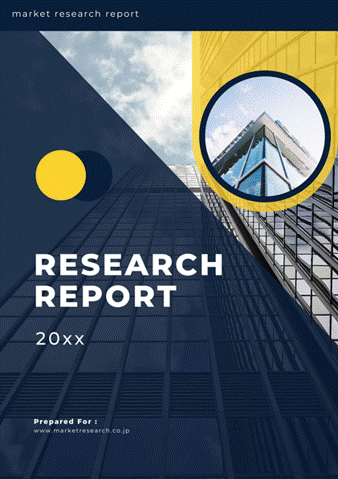 | • レポートコード:MRC2304K045 • 出版社/出版日:Mordor Intelligence / 2023年1月23日 • レポート形態:英文、PDF、130ページ • 納品方法:Eメール(受注後2-3営業日) • 産業分類:サービス |
| Single User | ¥684,000 (USD4,750) | ▷ お問い合わせ |
| Corporate License | ¥1,260,000 (USD8,750) | ▷ お問い合わせ |
• お支払方法:銀行振込(納品後、ご請求書送付)
レポート概要
| Mordor Intelligence社の本調査資料では、2020年に1,749億ドルであった世界の高級ホテル市場規模が、予測期間中(2021年-2026年)にCAGR 4%以上で成長すると予測しています。本資料では、高級ホテルの世界市場について多角的に調査し、イントロダクション、調査手法、エグゼクティブサマリー、市場動向、サービス種類別(ビジネスホテル、空港ホテル、スイートホテル、リゾート、その他)分析、地域別(北米、ヨーロッパ、アジア太平洋、南米、中東・アフリカ、アメリカ、カナダ、メキシコ、ドイツ、イギリス、フランス、イタリア、ロシア、スペイン、中国、オーストラリア、日本、インド、韓国、ブラジル、アルゼンチン、UAE、サウジアラビア、南アフリカ)分析、競争状況、市場機会・将来の動向など、以下の内容を記載しています。なお、参入企業情報として、ITC HOTELS、Marriott International Inc.、Accor SA、Belmond Ltd、Four Seasons Hotels Limited、InterContinental Hotels Group PLC、Rosewood Hotels & Resorts、Ritz-Carlton Hotel Company LLC、Hyatt Corporation、Shangri-La International Hotel Management Ltdなどが含まれています。 ・イントロダクション ・調査手法 ・エグゼクティブサマリー ・市場動向 ・世界の高級ホテル市場規模:サービス種類別 - ビジネスホテルの市場規模 - 空港ホテルの市場規模 - スイートホテルの市場規模 - リゾートホテルの市場規模 - その他サービス種類の市場規模 ・世界の高級ホテル市場規模:地域別 - 北米の高級ホテル市場規模 アメリカの高級ホテル市場規模 カナダの高級ホテル市場規模 メキシコの高級ホテル市場規模 … - ヨーロッパの高級ホテル市場規模 ドイツの高級ホテル市場規模 イギリスの高級ホテル市場規模 フランスの高級ホテル市場規模 … - アジア太平洋の高級ホテル市場規模 中国の高級ホテル市場規模 オーストラリアの高級ホテル市場規模 日本の高級ホテル市場規模 … - 南米の高級ホテル市場規模 ブラジルの高級ホテル市場規模 アルゼンチンの高級ホテル市場規模 … - 中東・アフリカの高級ホテル市場規模 UAEの高級ホテル市場規模 サウジアラビアの高級ホテル市場規模 南アフリカの高級ホテル市場規模 … ・競争状況 ・市場機会・将来の動向 |
The luxury hotel market was valued at USD 174.9 billion in 2020, and it is projected to register a CAGR of more than 4% during the forecast period (2021-2026).
The luxury hotel market faced losses in 2020 due to the sudden fall in tourism amid the COVID-19 pandemic. The tourism sector has already felt the negative impact of the pandemic on its performance much earlier. Globally, travel restrictions and measures started as early as January 2020. Domestic and international tourists limited their travel due to fear of contracting COVID-19.
The rise in the travel and tourism industry and changing patterns in the standard of living have led to progressive growth in the luxury hotel market trends. The demand for luxury hotels varies with the type of properties and is influenced by factors such as location, size, and on-site properties. Rising disposable income, popularizing weekend culture, the introduction of low-cost airline services, and the booming service sector are expected to drive the market. The inflation in purchasing power and standard of living are some of the key constituents responsible for attracting customers toward luxury resorts. Hosting sports events by a city or country is also a significant factor propelling the demand for luxury accommodations. Sports teams, as well as spectators traveling from different destinations for the tournament, tend to book their stays in luxury hotels, leading to a surge in the number of bookings. Dominant players in the market are investing profoundly in infrastructure and upgrading their property with the latest accessories to enhance aesthetics and the overall comfort offered to customers. The North American region is expected to dominate the market, followed by Europe, over the forecast period. The business hotel segment is leading and is expected to dominate the market.
Luxury Hotel Market Trends
Increasing Digitization of Services and Online Booking on Apps and Websites
Luxury hotels take direct bookings on their own hotel brand sites. Hilton launched a campaign aptly called “Stop Clicking Around,” alluding to the well-known statistic that global travelers browse an average of 38 websites before booking. Apps are increasingly important in the way hoteliers manage the services they provide to their customers and can now control many aspects of the guest cycle and experience. The trend toward digital and contactless services gained new momentum in 2020. Traditionally, customer-facing services are being given an overhaul, owing to the more widespread use of technology-assisted options, such as mobile check-in, contactless payments, voice control, and biometrics. Consumers who have become accustomed to unlocking their smartphones and laptops using facial and fingerprint recognition will soon come to expect the same convenience in accessing their hotel rooms.
Growing Trend of Availing Luxurious Lifestyle While Travelling
There is a growing trend of experiencing a luxury lifestyle during vacations or holidays among travelers. They see it as a totally relaxing and rejuvenating experience during vacation. This is becoming the trend among newly married couples and senior citizens, as they sum up this luxury stay as a lifetime experience. In the luxury hotel industry, it has become a trend to market their offerings while maintaining their brand image; for this, many strategies and endorsements are being practiced.
Luxury Hotel Market Competitor Analysis
The report covers major international players operating in the luxury hotel market. In terms of market share, few of the major players currently dominate the market. However, with factors such as technological advancements and service innovations, infrastructure development by local government and other facilities are attracting businesses and tourists.
Additional Benefits:
- The market estimate (ME) sheet in Excel format
- 3 months of analyst support
1 INTRODUCTION
1.1 Study Deliverables
1.2 Scope of the Study
2 RESEARCH METHODOLOGY
3 EXECUTIVE SUMMARY
4 MARKET INSIGHTS AND DYNAMICS
4.1 Market Overview
4.2 Market Drivers
4.3 Market Restraints
4.4 Value Chain/Supply Chain Analysis
4.5 Porter’s Five Forces Analysis
4.5.1 Threat of New Entrants
4.5.2 Bargaining Power of Buyers/Consumers
4.5.3 Bargaining Power of Suppliers
4.5.4 Threat of Substitute Products
4.5.5 Intensity of Competitive Rivalry
4.6 Impact of COVID-19 on the Market
5 MARKET SEGMENTATION
5.1 By Service Type
5.1.1 Business Hotels
5.1.2 Airport Hotels
5.1.3 Suite Hotels
5.1.4 Resorts
5.1.5 Other Service Types
5.2 Geography
5.2.1 North America
5.2.1.1 United States
5.2.1.2 Canada
5.2.1.3 Mexico
5.2.1.4 Rest of North America
5.2.2 Europe
5.2.2.1 Germany
5.2.2.2 United Kingdom
5.2.2.3 France
5.2.2.4 Italy
5.2.2.5 Russia
5.2.2.6 Spain
5.2.2.7 Rest of Europe
5.2.3 Asia-Pacific
5.2.3.1 China
5.2.3.2 Australia
5.2.3.3 Japan
5.2.3.4 India
5.2.3.5 South Korea
5.2.3.6 Rest of Asia-Pacific
5.2.4 South America
5.2.4.1 Brazil
5.2.4.2 Argentina
5.2.4.3 Rest of South America
5.2.5 Middle-East
5.2.5.1 United Arab Emirates
5.2.5.2 Saudi Arabia
5.2.5.3 South Africa
5.2.5.4 Rest of Middle-East
6 COMPETITIVE LANDSCAPE
6.1 Company Profiles
6.1.1 ITC HOTELS
6.1.2 Marriott International Inc.
6.1.3 Accor SA
6.1.4 Belmond Ltd
6.1.5 Four Seasons Hotels Limited
6.1.6 InterContinental Hotels Group PLC
6.1.7 Rosewood Hotels & Resorts
6.1.8 Ritz-Carlton Hotel Company LLC
6.1.9 Hyatt Corporation
6.1.10 Shangri-La International Hotel Management Ltd
7 MARKET OPPORTUNITIES AND FUTURE TRENDS
8 DISCLAIMER
